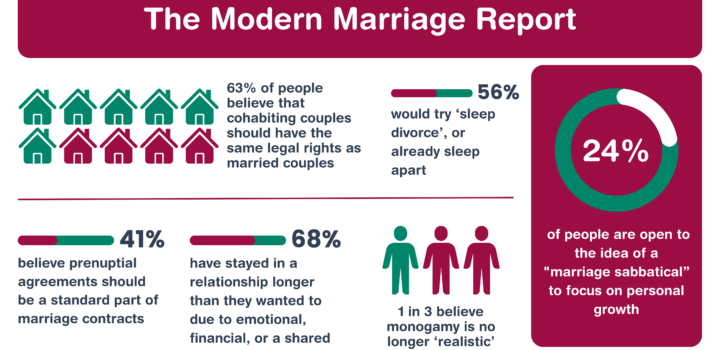The procedure to apply for a parental order after international surrogacy
A surrogacy arrangement is the practice whereby a woman carries a child for another person with the intention that the child should be handed over at birth to the commissioning couple or party and raised as theirs.
Surrogacy in the UK is governed by the Surrogacy Arrangements Act 1985 and the Human Fertilisation and Embryology Act 2008. The Surrogacy Arrangements Act defines the terms and regulates surrogacy arrangements. A surrogacy arrangement is not enforceable by or against any of the persons making it, however, the Surrogacy Arrangements Act expressly applies to such arrangements whether or not they are lawful.
In order for the arrangement to be lawful, regard must be had to the circumstances as a whole and the surrogate must not receive payment for carrying the commissioned child above reasonable expenses. Surrogacy, when done on a commercial basis, is prohibited in the UK. Although it is worth noting that even where a payment is considered to be in excess of reasonable expenses, the court may retrospectively approve the payment when considering an application for a parental order.
Parental Order
The legal solution in the UK for resolving parenthood in surrogacy matters is a parental order. In the absence of a parental order, one or both of the intended parents will not be the child’s legal parent in the UK. This can have implications on making decisions about the child’s medical care and education, alongside several other matters. A parental order fully and permanently reassigns parenthood to the commissioning couple, and extinguishes the parenthood of the surrogate mother. After the court makes a parental order, the UK authorities will also issue your child with a British birth certificate naming you both as parents.
In 2013, Mrs Justice Thesis made clear that “the legal relationship between children born as a result of surrogacy arrangements and their intended parent is not on a secure legal footing without [a UK parental order] being made”.
When considering an application for a parental order, the court will assess whether it is in the child’s best interests to make the order and their paramount concern is the welfare of the child throughout their life.
The commissioning parents must also meet the following eligibility criteria;
- the child must be born through a surrogacy arrangement and one or both of the applicants is a biological parent;
- the application must be made within 6 months of the child’s birth, but not in the first six weeks;
- on an application by two applicants, the applicants must be either:
- married
- civil partners of each other, or
- two persons who are living as partners in an enduring family relationship and are not within prohibited degrees of relationship to each other.
- on an application by two applicants, at the time of the application and the making of the order, the child’s home must be with the applicants (either in one home or separate homes if the applicants have separated)
- on an application by two applicants, at the time of the application and the making of the order, either or both of the applicants must be domiciled in the UK, the Channel Islands or the Isle of Man
- at the time of making the order, both applicants must have attained the age of 18
- the court must be satisfied that the surrogate mother (and her husband if she is married) has freely, and with full understanding of what is involved, agreed unconditionally to the making of the order
- the court must be satisfied that no money or other benefit, other than reasonable expenses have been given or received by the applicant(s) in respect of the arrangement, unless authorised by the court.
Procedure for obtaining a parental order through international surrogacy
At least half of the children born through surrogacy to UK parents are born outside the UK, and so the procedure for obtaining a parental order is well established. The procedure for this can be summarised as follows:
- Six weeks after your baby is born, the surrogate mother can sign the A101A consent form agreeing to a parental order. The form will need to be amended to confirm that she has received a payment and it will need to be officially translated.
- Once you have the surrogate mother’s signed consent, you can file your Form C51 with supporting documents:
- on an application by two applicants, the applicants must be either:
- Marriage certificate;
- Birth certificate for baby;
- DNA test showing the biological link to one of the intended parents;
- Form A101A signed by the surrogate mother – original and the signed translated version, if necessary; and
- A copy of the surrogacy agreement or contract that you have.
- The application needs to be filed at the Central Family Court.
- The Central Family Court will then issue the application form and return it to you with the following documents:-
- Issued Form C51 application
- Form C6 Notice of Hearing (which is unlikely to contain a date)
- Form C52 for the surrogate mother to acknowledge service
- Form C9 statement of service
You will need to obtain official translations of the Form C51, C6 and C52 and serve the surrogate mother with these. You will need to complete and file the C9 statement of service at Court.
- You must serve the surrogate mother within 14 days before the first hearing, and she must, within 7 days of being served with the application, file the Form C52 acknowledgement of service with the court and serve it on all other parties (meaning that she must sent a copy to the court and to you both).
- After your application has been issued by the Central Family Court, the court may set a date for the first directions hearing or give directions on the papers. Directions on the papers means that the court will make an order without any hearing. The order will contain the directions (steps that need to be taken before the final hearing) and set the date for the final hearing. If there is a directions hearing, that hearing should be within four weeks beginning with the date on which the application is issued although in fact there can sometimes be greater delays because of the current pressures on the court service. The court will also appoint a parental order reporter and set a date for them to file a report (this is usually a Cafcass officer who will advise the court on whether there is reason to refuse a parental order).
- The standard directions given either at the first directions hearings or, more commonly, on the papers, will usually be for:-
- You to give notice of the final hearing date to the surrogate mother and explain to her that a final Parental Order may be made on that date;
- CAFCASS to appoint a Parental Order Reporter and for that person to file a report by a specific date.
- For you to file a witness statement and supporting documents.
- A final hearing to take place on a specific date.
If directions are given on the papers, there will be only one Court hearing rather than two.
- The agreement of the surrogate mother is required and should be properly evidenced. The court has no power to make a parental order in favour of the commissioning parents without the agreement of the surrogate mother and their spouse, irrespective of the circumstances and what is best for the child. An exception to this will be where the surrogate mother cannot be found or is incapable of giving agreement.
- At the final hearing, the court will consider the application and evidence and decide on whether an order should be made. If an order is granted, within seven days beginning with the date on which the final order was made in proceedings, a court officer will send a copy of the order to the applicants and respondent, and send a sealed copy of the order authenticated with the stamp of the court to the Registrar General, to be recorded in the parental order register.
Alternatives to Parental Orders
If you are unable to meet the requirements to apply for a parental order, or if you tried to apply but were unsuccessful (such as if the surrogate mother withdrew consent) there are other options open to you.
An adoption order (made under the Adoption and Children Act 2002) and a child arrangements order are both alternatives procedures that could be considered and discussed further.
If the issues discussed in this blog affect you, please do contact us to speak with one of our surrogacy solicitors and discuss how we might be able to assist you.
















